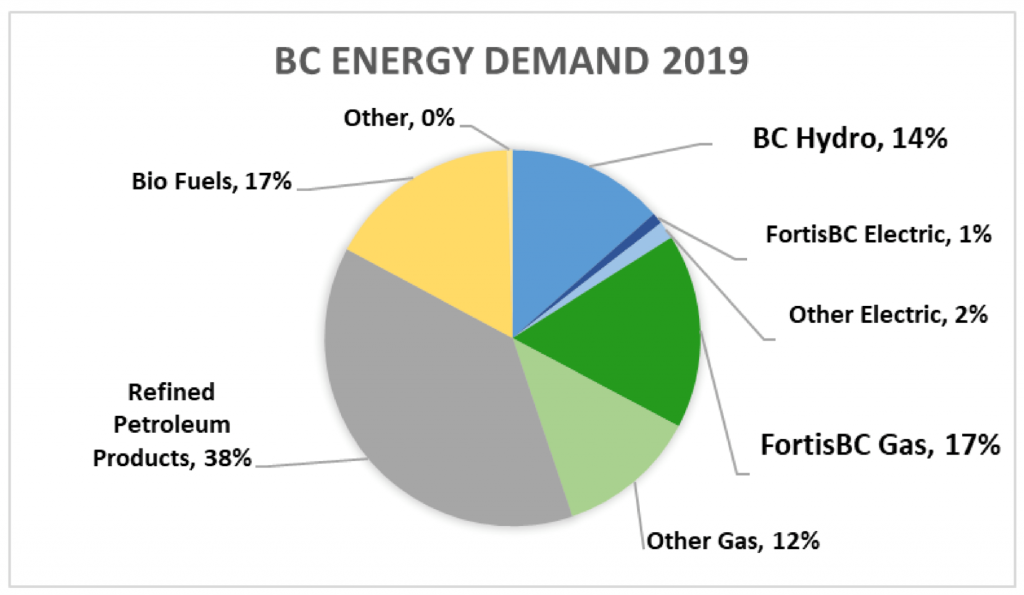| As noted in previous Monday Morning Briefings (MMB) and Government Relations Updates (GRU), there has been no end to government consultations on competing fronts of crisis and we encourage all HAVAN members to take advantage of the opportunities to provide your comments and concerns as they can, and do, influence the development of policy and legislation at all levels of government.
In 2021, the provincial government introduced CleanBC and its Roadmap to 2030, an ambitious plan to lower climate-changing emissions by 40% below 2007 levels by 2030. “Building Better” is one of 13 target areas that CleanBC has identified as being critical to helping achieve that goal.
Most recently, under the theme of Building Better, the government is moving forward with its goal of making home heating more efficient, through legislation that requires that after 2030, all space and water heating sold in BC will be required to have efficiency greater than or equal to 100%. While technical and economic analysis is underway, initial consultations with stakeholders have begun with four very well-attended webinar-style information sessions in the past three weeks.
Under the mandate of the Ministry of Energy, Mines and Low-Carbon Innovation (EMLI) stakeholders are being asked for feedback related to the implementation of the Highest Efficiency Equipment Standards for Space and Water Heating (HEES). There will be two approaches to advance proposed new standards, one through Point of Sales Standards and one through Point of Installation Standards, with consultation taking place at this time on the former.
Key changes include prescriptive point of sale standards for common, mass-produced heating equipment, effective January 1, 2030. These standards will prohibit the sale of new and replacement conventional gas and oil-fired equipment for residential forced air and hydronic heating systems; domestic water headers and weatherized gas-fired packaged units. Further details the proposed new standards and what would be considered compliant and what wouldn’t be can be found here.

| There were mixed reviews from participants of the consultation sessions. Those in our sector who are working with new and emerging technologies are appreciative of the government’s ambitious approach to the reduction of GHG emissions, embodied carbon and reduced reliance on fossil fuels and are keen to support the introduction of legislation to implement across the province.
Others have expressed concerns related to the capacity of overall electrical supply for the province, increased demand for qualified HVAC professionals for the installation of more complex compliant equipment, emergency repair and replacement and availability of parts, inequities due to northern and remote communities, and the significant costs of new equipment replacement with incentives only available for social housing and those that are low-income qualified.
While we applaud the provincial government on taking bold approaches to address climate change, we recognize potential unintended consequences and a potential lack of capacity in many areas that may have a detrimental effect on our members and homeowners in their efforts to support government goals. We encourage our members to provide their feedback directly to CleanBC at HEES@gov.bc.ca

And while the provincial government continues to press on electrification across many fronts, FortisBC recently shared its look at the Future Energy Landscape, highlighting the overall demand for energy across British Columbia and the role that renewable natural gas (RNG) can play in meeting energy demands.
NATIONAL DAY ON THE HILL
HAVAN Chair Henri Belisle of TQ Construction, and HAVAN Board Director Rob Griesdale of Blackfish Homes travelled to Ottawa with CHBA leadership and delegates from across the country for federal Day on the Hill meetings with Ministers, MPs and other senior officials last week to bring forward issues on housing.

Photo: Henri Belisle HAVAN Chair, Rob Griesdale HAVAN Director, MP Ken Hardie, Mark Bernhardt, CHBA BC 1st Vice Chair and CHBA VI Director, Kerriann Coady CEO CHBA VI, Neil Moody, CHBA BC CEO.
BC delegates attended meetings with Minister Qualtrough, MP Ken Hardie, MP Randeep Sarai, MP Wilson Miao, Chief of Staff to MP Hedy Fry and Jenny Kwan, and MP Parm Bains.
Topics brought forward from our region called for an ‘all hands on deck’ approach, citing unrestrained increases in DCCs and other charges offsetting federal initiatives and despite multiple efforts introduced by the province to clear the path for densification, some municipalities are resisting inclusionary zoning efforts to promote significant “as of right” density adjacent to existing and proposed transit routes, supported by federal funding.
Recommendations outlined at the national level and supported by the HBA delegates focused on introducing a 30-year amortization period for first-time buyers on newly constructed homes, an increased GST rebate on the cost of new or substantially renovated housing, and significant support for factory-built construction. See this year’s recommendations from CHBA to parliamentarians in Unlocking the Door to Homeownership – 2024 CHBA Policy InfoGuide. |
| 50 YEARS AND CELEBRATING – SPONSORSHIP OPPORTUNITIES
HAVAN is 50 this year (in case you didn’t know!) We take pride in our rich history and the influence the association has made over the past 50 years supporting industry to build homes and help shape communities where we live and work.
Now it’s time to celebrate! Join the party on June 13th, and help share in HAVAN’s 50th anniversary. Limited sponsorships are available now. Contact Renee@havan.ca for details.
HAVAN continues to work with CHBA BC and CHBA to advocate for all levels of government to work together to address the challenges of the housing industry including zoning restrictions, density limits, and NIMBYism.
Looking to stay up-to-date on Metro Vancouver’s residential housing industry? Sign up for Ron’s weekly Monday Morning Briefing and other HAVAN emails here.
QUICK BITES …
- Stat’s Can’s weak January Labour Force Survey adds one more reason for the Bank of Canada to take its time initiating an interest rate cut, as reported by Canadian Mortgage Trends. (Upcoming rate announcements are scheduled for March 6, April 10, and June 5)
- The Rennie 2024 Outlook predicts a stronger back half in 2024.
- CIBC reports Canada now needs to build an additional 1.5 million homes over and above the projected 3.5 million homes by 2030, as first reported by CMHC.
- CHBA National released their Sector Transition Strategy detailing changes and supports needed to enable the industry to build 5.8 million homes in the next decade to close Canada’s housing supply gap and improve housing affordability.
- BIV shares a new report from Re/Max Canada, which concludes the tax burden weighs on buyers in areas such as the City of Vancouver, where the average price for a detached home was $1,942,400 as of January, noting the inadequate first-time homebuyers threshold of $525,000 and land transfer tax not applicable in other regions such as Alberta are causing those in pursuit of homeownership to leave the province.
- The thing that stops homes from being built in a housing shortage according to Siteline Institute is the numbers don’t work, and until we cut the cost of building homes rent hikes will not stop.
- Permits and costs of a renovation to convert a simple powder room into a full bathroom was compared in 12 major cities across Canada by The Canadian Federation of Independent Business. Vancouver has the highest permitting costs with an additional 11 documents for a cost of $2,029, while Charlottetown requires just five documents at a cost of $180. One only needs to extrapolate the fees for a whole home renovation to understand the true impact.
- And finally, a new research paper from the UBC Sauder School of Business has found that city councillors are more likely to vote against large new housing developments when they represent an area with a heavy percentage of homeowners, including themselves.
|
|
|













